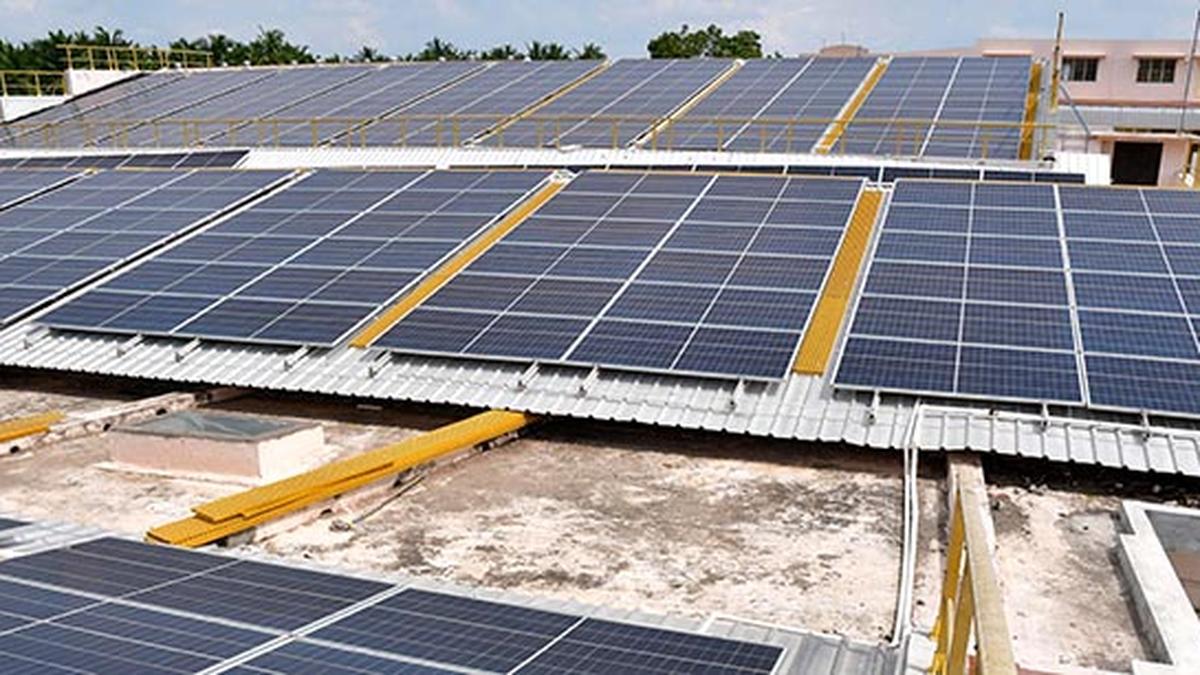The Indian government has intensified its scrutiny of domestic solar manufacturers, mandating stricter disclosure norms to ensure transparency and compliance. In a notification issued on August 7, the Centre has instructed solar cell and module manufacturers to upload detailed information about their annual imports, exports, and the locations of their manufacturing facilities on two designated online portals. This move aims to strengthen the self-certification process, with companies declaring their use of indigenous solar components. The National Institute of Solar Energy (NISE), an autonomous body under the Ministry of New and Renewable Energy (MNRE), will appraise these self-certifications.
Strengthening Solar Energy Policies and Compliance
This new directive is a key part of the government’s broader strategy to boost domestic solar energy production and reduce reliance on imported components, particularly from China. Earlier this year, the Indian government launched the ₹75,000 crore PM Surya Ghat Muft Bijli Yojna, which aims to provide 300 units of free solar electricity to one crore households. However, to benefit from this scheme, all solar components used must be manufactured in India. This policy aligns with other government clean energy initiatives that also mandate the use of India-made components.
India, which currently has approximately 85 GW of installed solar energy capacity, plans to expand this to at least 200 GW by 2030. The new disclosure norms are expected to play a critical role in ensuring that this expansion is driven by domestic manufacturing, aligning with the country’s green energy policies and solar energy market trends.
Approved Manufacturing and Domestic Content Requirements
The latest notification builds on the existing Approved Models and Manufacturers of Solar Photovoltaic Modules (Requirements for Compulsory Registration) Order, 2019 (ALMM). This order requires solar module manufacturers to voluntarily submit to inspections of their facilities by NISE. Companies that meet the criteria are listed as ‘approved’ manufacturers, certifying them as legitimate producers of solar panels rather than mere importers or assemblers.
According to the new directive, all manufacturers currently listed under ALMM must submit data about their solar photovoltaic (PV) manufacturing facilities from April 2023 onwards. They have four weeks from the issuance of the order to comply, failing which they risk being de-listed from the ALMM.
“The amendments also focus on verifying Domestic Content Requirement (DCR) compliance through a newly established digital portal,” stated Gaurav Upadhyay, Energy Finance Specialist at India Sustainable Finance. “This portal will streamline and enhance transparency in the DCR verification process, ensuring that manufacturers meet these critical domestic content standards.”
Aiming for a Self-Reliant Solar Energy Market
These tightened regulations reflect the government’s commitment to fostering a self-reliant solar energy market in India. By enhancing oversight and ensuring compliance with domestic content requirements, the Centre aims to boost the quality and reliability of solar energy solutions produced within the country. This move is expected to not only support India’s ambitious solar energy targets but also contribute to the global shift towards sustainable and locally-sourced green energy.
Source:thehindu.com





